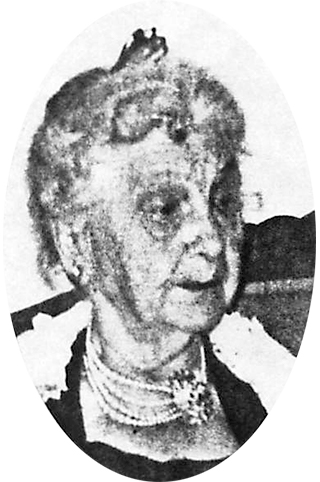(1882 – 1971)
Born in 1882 and educated at Peabody College and Auburn University, where she took the early courses offered for home demonstration agents, Victoria Clayton Lingo was a pioneer in Extension work and established for herself a reputation as one who was always willing to lend a helping hand.
She was the daughter of Thomas and Lenorah Clayton and spent her early life in Clayton, Alabama. After school, marriage, and the first job as license inspector for Barbour County, Victoria Clayton Lingo’s first assignment with the newly created Cooperative Extension Service was as Home Demonstration Agent in the two counties of Randolph and Macon. The year was 1918 when forty-six of Alabama’s counties had just begun organizing Home Demonstration Clubs where club women were adding to their homes fireless cookers, iceless refrigerators, fly traps, fly screens, ironing boards, showerbaths, and washing machines.
The year 1918 was memorable in home agent work because it was the year of the great food conservation campaign aimed at helping the war effort. Other work of the home demonstration agents that year was demonstrating wheat substitutes and establishing war kitchens. By 1921, Mrs. Lingo was working with the girls and women’s clubs back in her home county of Barbour, visiting them in their homes, and looking after individual problems in the kitchen, the vegetable garden, and the poultry yard. Altogether, Mrs. Victoria Lingo spent fourteen years doing home demonstration work for the Extension Service — establishing a pattern of service to her fellow women in Randolph, Macon, and Barbour counties — helping them to improve their standard of living, to add the new home conveniences, and to become community leaders.
The family later moved to Montgomery County and Victoria returned to work in 1942 as a dietitian at the Capitol Heights Elementary School. She retired in 1953 and dedicated more of her time to a hobby that she thoroughly enjoyed — painting. According to her grandson, she was evidently quite an accomplished painter.
Left to cherish her memories are her grandson Richard J. Lingo and family of Eufaula; and granddaughter Reesa Lingo Estes and family of Wetumpka.
To honor this pioneer in Extension work, the name of Victoria C. Lingo is inscribed on the dedicatory plaque of the Extension Memorial Chapel.
Chapel Plaque Inscription Number: 332
